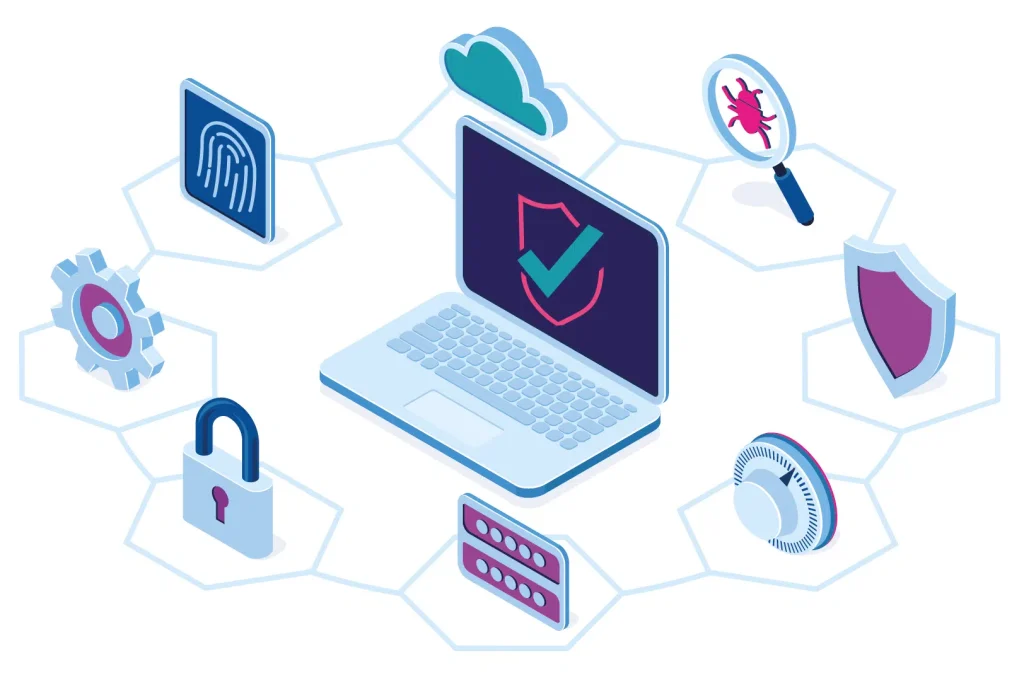In today’s digitally driven world, cyber security is becoming more and more important for everyone, even small businesses. Small businesses don’t often have the resources to focus on cyber security, and way too often, they don’t think they will be a valuable target for hackers. Unfortunately, this is not how it works. Most of the time, hackers scan the internet for vulnerabilities, sending phishing emails to all mail addresses they can find. Once they have a hit, they start exploiting and extorting them. They don’t care if your company is a small business or an enterprise.
Below, we want to provide the Top 5 cyber security best practices in order to provide small businesses focus and a roadmap:
1 Prepare yourself, it will happen!
It is just a matter of time before a cyber incident happens at your company. Or maybe it already happened? Ask yourself the question… do you have enough defensive and detecting measures in place to be completely sure it never happened?
Cyber incidents also come in many varieties. It could be a complete breach, denial of service, data leakage, ransomware through phishing emails, etc. One thing is for sure: it will cost you money. Money to recover in terms of additional hardware, software, consultancy, … And foremost, do not underestimate the reputational damage to your brand!
2 Security Awareness
Invest in people! They are an essential line of defense. They are often also the most beloved target of hackers as they can bypass external security mechanisms through them by, for example, clicking on phishing emails and letting the hackers in.
Your employees need to be aware of this. The two most important security measures to consider for them are the importance of strong passwords and recognizing phishing emails. They need continuous training in order to stay aware all day long. Luckily, there are a lot of solutions available to help you.

3 Test your environment!
Penetration testing or ethical hacking is an efficient approach to verify which security vulnerabilities are present in your environment. Hence, which open doors hackers might abuse. It is always cheaper and better for your reputation to let ethical hackers test your environment before a real hacker does.
A specialized penetration testing company can assist you in determining your exposure and most critical assets. This could be your network, applications, employees, etc. Tackle these one by one. Every test will bring a list of corrective actions to be taken. By keeping focus, a clear and manageable roadmap of tasks will be created and help you in the future.
4 Part of the organization
Cyber security should not be an IT problem. The business should carry it. Every organizational and business decision should keep cyber security in mind. Security is not just when setting up a network or launching a new application. It should be incorporated into every process (HR, Sales, etc). Hackers only need one entry point, and, as stated before, it is just a matter of time before they find it.
5 It happened!
Tackling security used to be only defining strategies to keep hackers out. Today, of course, they are still important, but a shift has happened. You need to be prepared for once they get in! Ensure you have proper backups so you don’t have to give in to ransomware. Test the recovery of your backups. A lot of companies have backups or pay an external provider to do so, but once a recovery is necessary… everything goes horribly wrong.
Besides backups, there needs to be an incident response plan. How small or big your organization is. At the minimum, a roadmap should be present with steps to be taken, who to call, who is responsible for what, etc.
We hope with these 5 tips that small companies have a bit of a starting point towards a safer environment.
